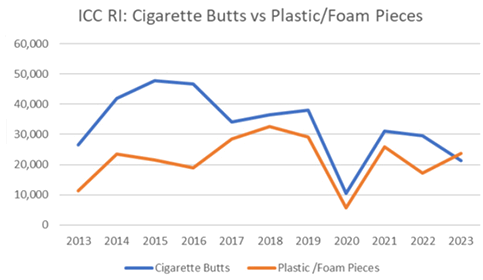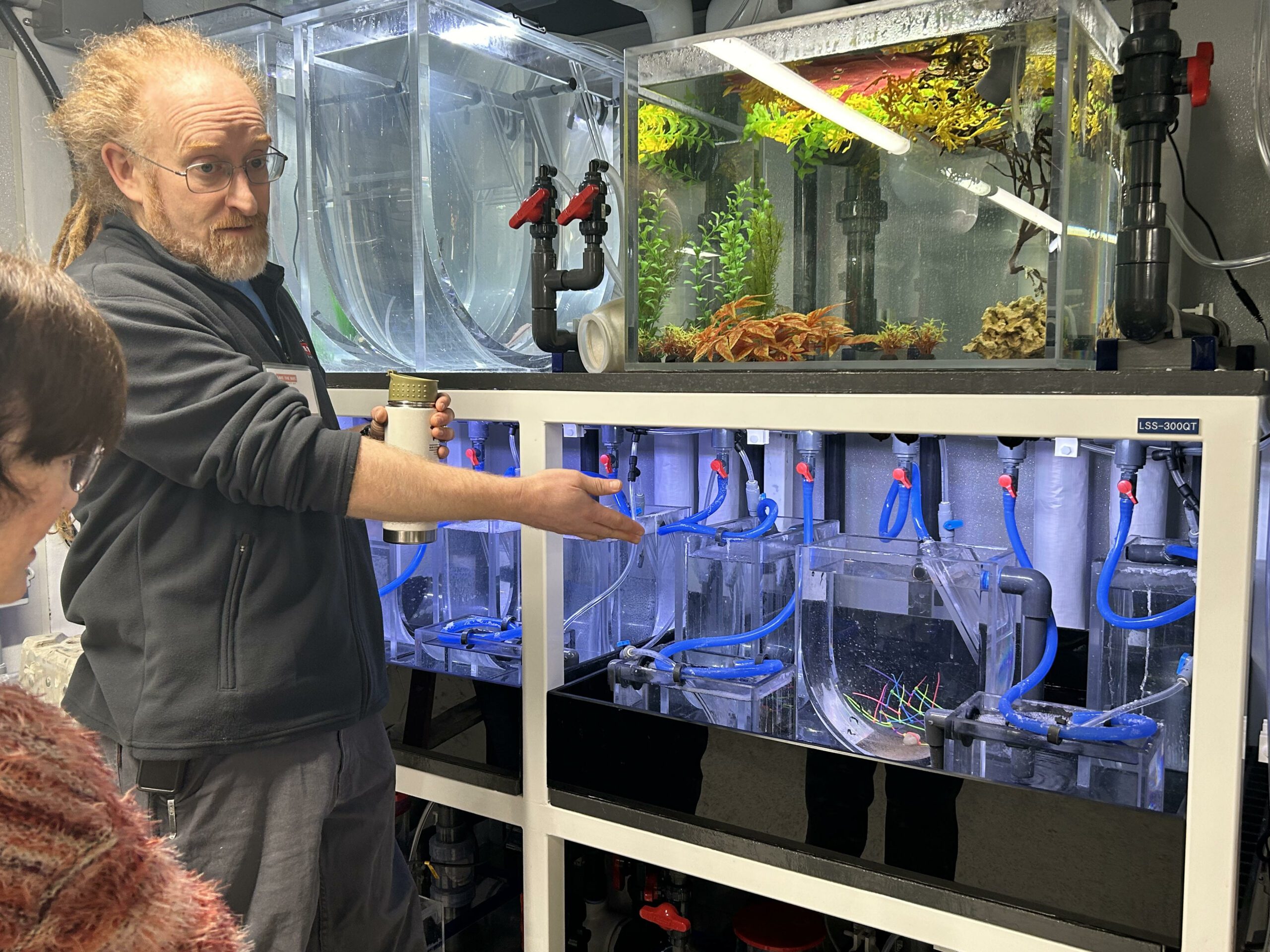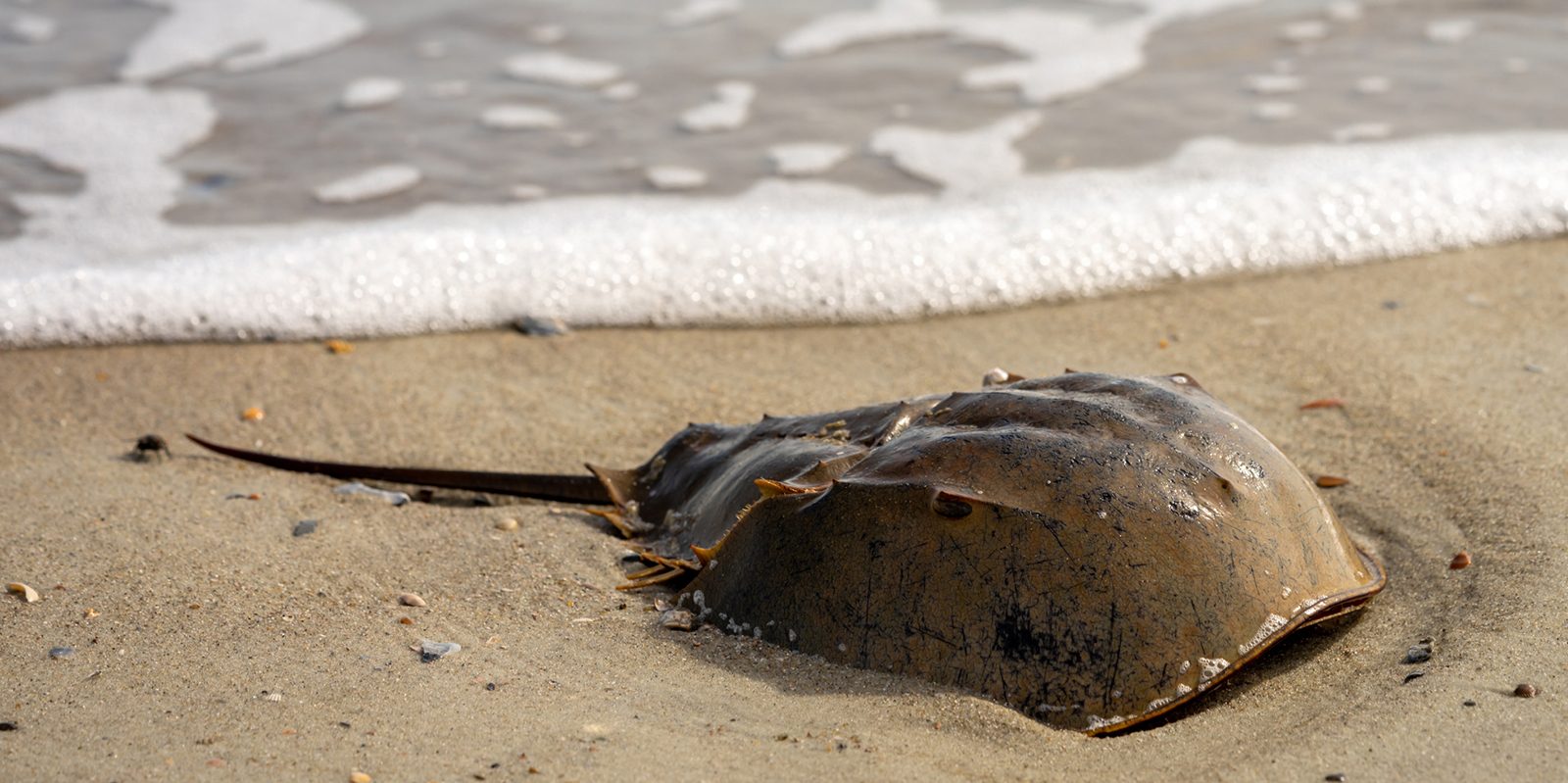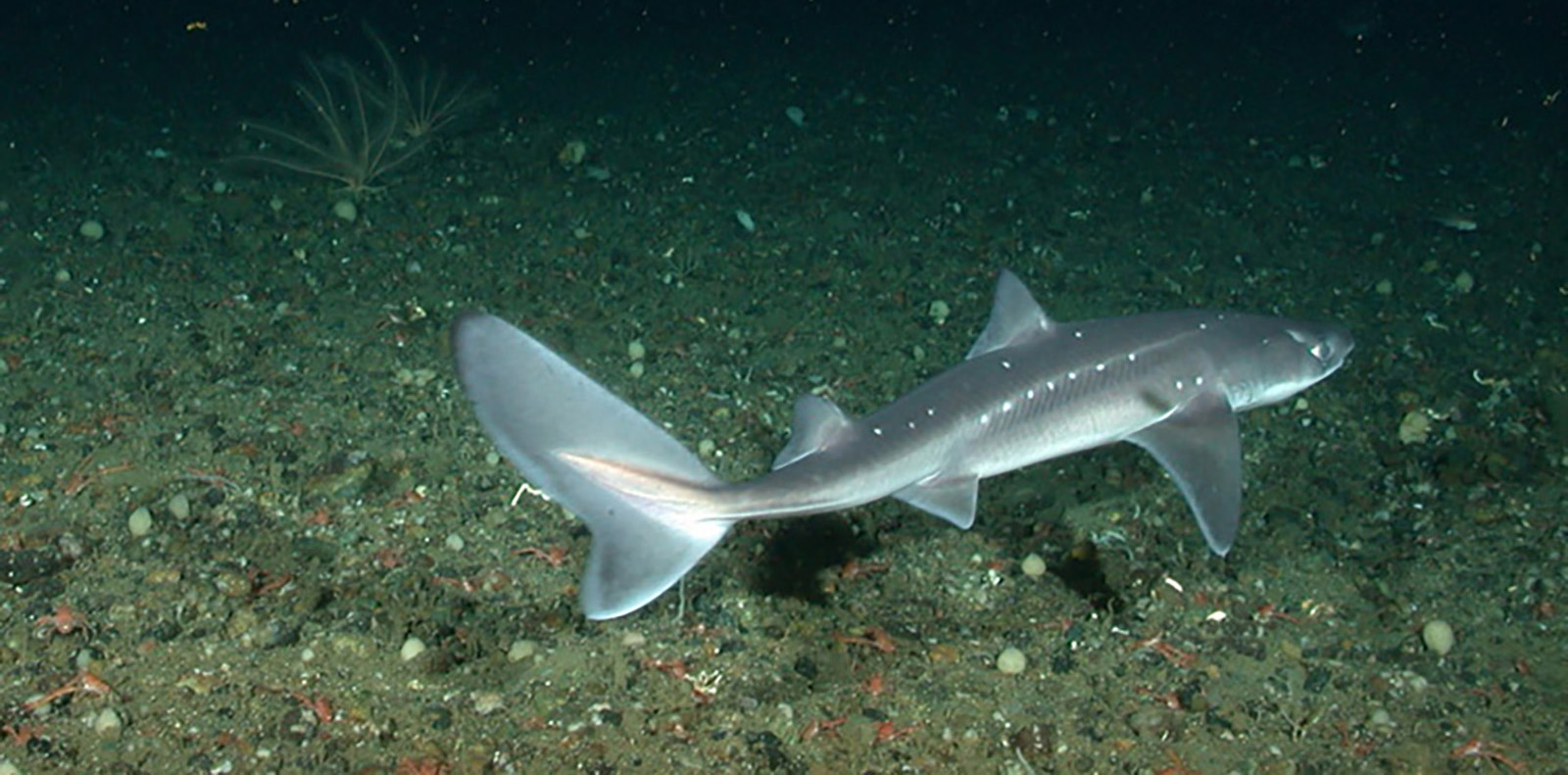Plastic Pieces Overtake Cigarette Butts as Ocean State’s Top Beach Debris
January 23, 2024
For the first time in the history of Rhode Island’s participation in the International Coastal Cleanup program, cigarette butts were not the item most collected by volunteer participants. Instead, small plastic and foam pieces — those pulverized bits that accumulate in wrack lines — took the lead, according to Save The Bay’s recently released 2023 International Coastal Cleanup Report.
“When this project started over 35 years ago, the focus was on recording the most common types of identifiable trash so that we could get a picture of what was littering our shores and where it was coming from,” Save The Bay volunteer and internship manager July Lewis said. “In terms of the number of items picked up, cigarette butts were always at the top of the list.”
Last year, however, 2,830 local volunteers collected 23,468 plastic and foam pieces — and 21,165 cigarette butts.

In historical terms, plastic litter is relatively new to the shores of Narragansett Bay — notes from Save The Bay’s earliest 1970s cleanups barely mention it. But today, plastic is everywhere and never really goes away. Instead, it breaks down into smaller and smaller pieces, eventually becoming microplastics that contaminate waterbodies.
To account for the growing epidemic of plastic pollution, the Ocean Conservancy added a new category of reporting to its International Coastal Cleanup data cards in 2013: “tiny trash,” the category that is now the frontrunner of collected litter in Rhode Island.
The change represents a sea change in the plastic debris problem for Narragansett Bay and regional waters.
“Our team has found microplastics in every part of the bay, and we find them every time we look for them,” Save The Bay executive director Topher Hamblett said. “The best thing we can do to stop the plastics problem is to prevent plastic from ever entering our waters — whether you make sure to dispose of your trash properly, volunteer at a shoreline cleanup, or support changes in local policy, like telling your legislators to pass a bottle bill.”
The Ocean Conservancy’s International Coastal Cleanup organizes volunteers around the world to collect trash from shores and record what they find. The data are published in an annual report that is a key resource for advocates working to reduce marine debris.




Time to ban all plastics. Plastics are now how the fossil fuel industry justifies drilling for more oil and gas. Plastics are a trash and CLIMATE disaster